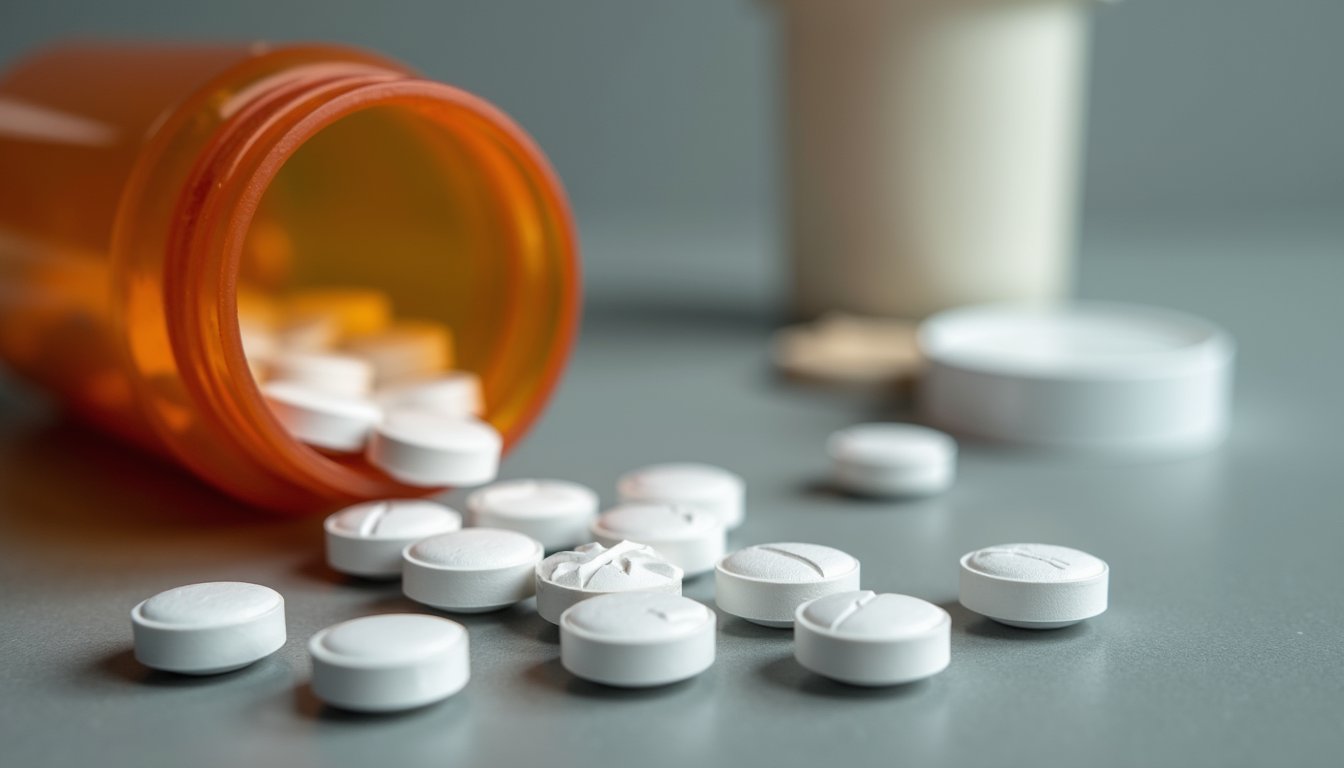ETOH Abuse Meaning
⚠️Visitors to our site are often searching for information because they, their best friend, or a family member has unfortunately fallen into use of dangerous substances. We aim to provide educational information on the etoh abuse meaning but more importantly, we protect people from the dangers of all types of substance abuse! ⚠️
Don’t hesitate to call our admissions department at (833) 781-8338 or click the button below to verify your insurance and get substance abuse help for yourself or a loved one.
Key Points
- “ETOH” is a medical abbreviation derived from “ethanol,” commonly used in clinical settings to denote alcohol.
- Symptoms of alcohol abuse include physical dependence, withdrawal symptoms, tolerance, and adverse social consequences.
- Long-term abuse significantly increases risks for liver disease, neurological damage, and cardiovascular issues.
- Abrupt cessation of alcohol (cold turkey) can be fatal, necessitating medically supervised detoxification.
- Inpatient medically assisted rehabilitation is highly effective in managing alcohol dependency.
- Insurance typically covers inpatient rehab for alcohol treatment, including detoxification and ongoing therapy.
Introduction
The term “EtoH abuse” might appear clinical or unfamiliar, yet it simply refers to alcohol abuse. The abbreviation derived from ethanol, the type of alcohol found in beverages like beer, wine, and spirits. Understanding this term helps demystify medical discussions and encourages individuals to seek necessary treatment.
History and Significance
The abbreviation originates from chemical nomenclature, reflecting ethanol’s chemical formula: C2H5OH. In healthcare settings it has become a shorthand notation on medical records, emphasizing a scientific approach towards alcohol use and addiction [1]. Recognizing abuse as a medical condition reduces stigma, promoting more open conversations about addiction and recovery.
Recognizing Symptoms
Identifying abuse involves observing behavioral, physical, and psychological symptoms. Common signs include:

- Increased tolerance to alcohol.
- Withdrawal symptoms (e.g., shaking, sweating, nausea).
- Repeated unsuccessful attempts to reduce alcohol consumption.
- Neglecting personal and professional responsibilities.
- Persistent alcohol use despite clear health or social consequences.
These symptoms clearly signal that intervention is necessary, and timely treatment can mitigate serious health risks [2].
Real-Life Examples of Alcoholism

Abuse manifests in various forms. Examples include
- Binge drinking episodes
- Daily heavy drinking
- Hiding alcohol consumption from loved ones
- Drinking despite obvious health risks
- Continually failing to fulfill obligations at work or home due to alcohol use
Recognizing these scenarios can prompt early intervention.
Diagnosing Alcoholism
Healthcare providers utilize standardized criteria such as those outlined in the Diagnostic and Statistical Manual of Mental Disorders (DSM-5) for diagnosing Alcohol Use Disorder (AUD). Diagnosis involves a thorough evaluation of drinking habits, associated health issues, and the impact of alcohol on daily life [2]. Early diagnosis enhances the effectiveness of treatments, significantly improving recovery outcomes.
Long-Term Adverse Health Effects of Alcoholism
Chronic abuse profoundly impacts long-term health, leading to:
- Liver diseases such as fatty liver, hepatitis, and cirrhosis.
- Neurological conditions including memory impairment, dementia, and neuropathy.
- Cardiovascular diseases, including hypertension and increased stroke risk.
- Increased risks of cancer, particularly of the liver, throat, and esophagus.
Addressing alcohol abuse early reduces these health risks, significantly improving life expectancy and quality of life [4].
Risks Associated with Abruptly Stopping Alcohol
Attempting to quit alcohol suddenly without medical supervision can lead to dangerous, potentially fatal withdrawal symptoms. These can include seizures, severe delirium (delirium tremens), hallucinations, and profound cardiovascular instability. Due to these serious risks, medically supervised detoxification in an inpatient setting is strongly recommended [5].
The Importance of Inpatient Medically Assisted Rehabilitation
Inpatient rehab provides a controlled environment, significantly enhancing recovery success rates. At facilities like Simonds Recovery Center, inpatient treatment involves 24/7 medical supervision to manage withdrawal symptoms safely and effectively. Structured therapeutic interventions, including individual counseling, group therapy, and ongoing medical evaluation, further support recovery [6].
Medications Facilitating Alcohol Recovery

Medically assisted recovery incorporates FDA-approved medications such as:
- Naltrexone, reducing cravings and preventing relapse.
- Acamprosate, assisting in maintaining abstinence by stabilizing brain chemistry.
- Disulfiram, which discourages alcohol consumption by inducing unpleasant effects if alcohol is consumed.
Medication is combined with psychological therapies to optimize outcomes, creating a holistic approach to recovery [2].
The Role of Support Groups in Treatment
Support groups significantly enhance recovery efforts by fostering community and accountability. Groups like Alcoholics Anonymous (AA) or SMART Recovery provide emotional support, coping strategies, and accountability systems, all essential for long-term sobriety [3].
Insurance Coverage for Alcohol Rehabilitation
Insurance coverage generally supports inpatient alcohol rehabilitation services. This includes medically supervised detox, medication, individual therapy, and group counseling sessions. Coverage specifics vary by policy, but most health insurance providers acknowledge addiction as a medically necessary condition requiring professional intervention [1].
How Simonds Recovery Center Can Help
Simonds Recovery Center specializes in providing comprehensive, individualized inpatient treatment for alcohol dependency. Our approach integrates medically assisted detox, personalized medication regimens, therapeutic interventions, and structured support groups. With trained professionals dedicated to managing the complexities of alcohol withdrawal and addiction, our facility ensures a safe, supportive environment designed to optimize recovery success.
Our experienced medical staff administers FDA-approved medications tailored to each patient’s unique needs, ensuring the safest detoxification process possible. Post-detox, our structured inpatient program continues to provide intense therapeutic support, life skills education, relapse prevention strategies, and continuous medical monitoring.
Simonds Recovery Center emphasizes compassionate care and privacy, empowering patients to regain control over their lives and build foundations for long-term sobriety.
Frequently Asked Questions (FAQs)
What does ETOH stand for? This stands for ethanol, the type of alcohol found in beverages. It is used clinically to denote alcohol-related health issues.
Is alcohol withdrawal dangerous? Yes, alcohol withdrawal can be life-threatening, particularly without medical supervision. Symptoms can include seizures and severe delirium.
Does insurance typically cover inpatient alcohol rehab? Most insurance policies cover inpatient rehabilitation for alcohol treatment, including detoxification and therapy services.
How long does inpatient alcohol rehabilitation usually last? Inpatient treatment durations can vary, typically ranging from 30 to 90 days, based on individual needs and medical assessments.
What makes inpatient rehab better than quitting alone? Inpatient rehab provides comprehensive medical and psychological support, significantly reducing risks of relapse and dangerous withdrawal complications.
Final Thoughts
Understanding alcohol abuse and its profound health implications highlights the critical importance of timely, medically supervised treatment. At Simonds Recovery Center, we provide the necessary resources, expertise, and compassionate care required for safe detoxification and lasting recovery. Our holistic inpatient treatment approach ensures that individuals struggling with alcohol dependency have the best possible chance at a healthier, alcohol-free life.
References
[1] Substance Abuse and Mental Health Services Administration (SAMHSA)
Alcohol Use Disorder – Causes, Symptoms, Treatment & Help
https://www.samhsa.gov/substance-use/learn/alcohol
[2] National Institute on Alcohol Abuse and Alcoholism (NIAAA)
Understanding Alcohol Use Disorder
https://www.niaaa.nih.gov/publications/brochures-and-fact-sheets/understanding-alcohol-use-disorder
[3] Centers for Disease Control and Prevention (CDC)
Alcohol Use and Your Health
https://www.cdc.gov/alcohol/about-alcohol-use/index.html
[4] American Liver Foundation
Alcohol-Associated Liver Disease: Causes & Symptoms
https://liverfoundation.org/liver-diseases/alcohol-associated-liver-disease/
[5] Mayo Clinic
Alcohol Use Disorder – Symptoms and Causes
https://www.mayoclinic.org/diseases-conditions/alcohol-use-disorder/symptoms-causes/syc-20369243
[6] National Institute on Drug Abuse (NIDA)
Alcohol Use Disorder: From Risk to Diagnosis to Recovery
https://www.niaaa.nih.gov/health-professionals-communities/core-resource-on-alcohol/alcohol-use-disorder-risk-diagnosis-recovery





